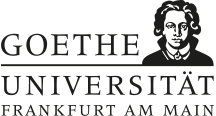
Michael C. Frank
Vortrag in englischer Sprache im Rahmen der Reihe 'New Frontiers in Memory Studies'
Since its emergence in the late nineteenth century, sub-state terrorism has always been accompanied by myths and fictions about the perpetrators’ motivations and goals, their methods and weapons, and, most important of all, their future plans. The reason for this lies in the strategic logic of terrorism. Actors engaging in such violence operate clandestinely, unseen by the public, until they unexpectedly come out of hiding to execute spectacular attacks in places of high visibility, eager to attract as much media attention as possible. What characterizes terrorism, moreover, is less the single act of violence than it is the fact that this act is perceived to be the beginning, or part, of a potential series, and that further acts are expected to occur. To achieve its defining effect – collective fear of more violence to come – terrorism relies on the belief that the next attack is impending, and that it could happen anywhere, anytime. In this sense, the terror caused by terrorism is a halfway house between the real (actual attacks and their tangible aftermath) and the imaginary (possible future assaults).
In order to grasp this fantastical dimension of terrorism, I will introduce the concept of the “cultural imaginary.” As I shall demonstrate, the cultural imaginary of terrorism can be traced back at least as far as the 1880s and 90s, the decades that saw the first manifestations of sub-state terrorism against public figures, public buildings, and the public at large, for example, in the form of the so-called “Dynamite War.” When juxtaposing fin-de-siècle fictions about possible future attacks with post-9/11 statements by government officials and security experts, one may notice several striking similarities. These similarities suggest that the cultural imaginary of terrorism transcends (and indeed blurs) the boundary between fiction and political discourse, and that it is characterized by both continuities and discontinuities.
Michael C. Frank has recently completed his Habilitation thesis, Narrating Terror, and is currently a substitute professor of English at the University of Constance. His related publications include the collected volume Literature and Terrorism (ed. with Eva Gruber), the special issue Kultur und Terror for the Zeitschrift für Kulturwissenschaften (ed. with Kirsten Mahlke), as well as a number of journal articles and book chapters on terrorism in British and American literature and film.
Weitere Informationen finden Sie auf der Frankfurt Memory Studies Platform: www.memorystudies-frankfurt.com
